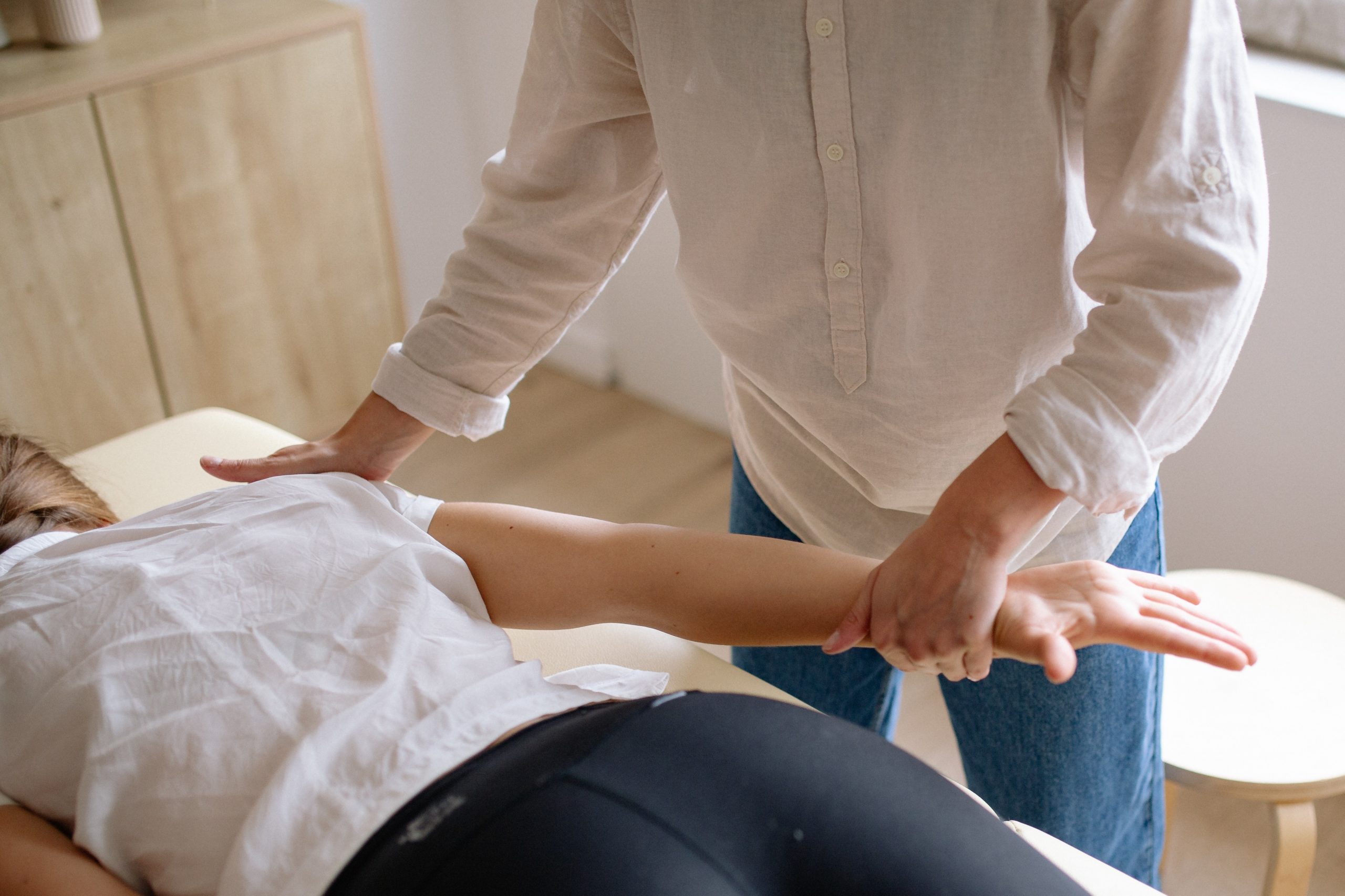During March the chiropractic team looked at how we assess, analyse and treat people with shoulder pain.
Shoulder pain is something many people struggle with, and unsurprisingly it might not always originate from the shoulder itself. Getting a thorough assessment is therefore really helpful in finding the source of the problem.
Some of the common shoulder diagnoses you might have heard about are:
- Frozen shoulder
- Impingement syndrome
- Biceps tendinitis
- Osteoarthritis of the shoulder
- Calcific tendinitis of the shoulder
- And more…..
Case history:
When you see one of our chiropractors we will always start with a very thorough case history so we can understand how this happened. Has it been there for a long time, or was it a recent injury? We like to know how it impacts your daily life and when it occurs, and what kind of activities you are unable to do. We also take great interest in your overall health and fitness, and what kind of medication you might be on. Understanding how you spend your day is of vital importance to us: for example, sitting behind a desk for 8 hours will have a different impact on the shoulder, than that of a mother of a toddler, or someone working in a manual trade.
What is also of great importance is understanding exactly where it hurts, and how you experience this pain. Your words are really vital for us and can describe so much which then helps us in our examination.
Examination:
The next stage is our examination where we assess and analyse your mechanical frame. We always start with the spine and the overall alignment. What is your posture like, and how upright are you?
When we stoop or slouch and have a forward head posture, our shoulders naturally roll forward. This will affect how the shoulder itself can function in daily life and how the muscles can work for you. We are designed to have our shoulders in a certain place and position, and when this changes, we have many more incidences with strain and over-use injuries.
We then assess the shoulder itself from active movement, to passive movement, and the strength and balance of the muscles around the shoulder. We look at the arc of motion of your shoulder and where it might pinch, or simply stop moving. Is there inflammation, soreness and, or redness?
Some of these tests are orthopedic tests, and some might be neurological and muscle strength tests.
Report of findings:
This is when we explain to you our findings and what we can do to help.
It is so important that what we say makes sense to you, and you can fully understand why this has happened and how. Science shows that when you understand your own condition you will take more active interest in helping yourself with self-care at home.
Our chiropractors will explain what kind of treatments we would use to help you, and then how you can help yourself at home with posture, home exercises and alignment. The exercise programme will be different for everyone depending on what your situation is, and who you are. We might need to take it slowly if you are very inflamed, and start with gentle exercises in a non-painful arc initially. If needed, we would also offer to collaborate with our physiotherapist for rehabilitation of your shoulder long term.
We would also like to add tips for work and sitting at your desk and we find that many people sit at poorly set up desks and chairs, especially when working from home, which can cause shoulder problems over time.
Here are some films from our YouTube page on posture and shoulders:
Simple exercise for a frozen shoulder:
Simple exercises for posture:
If you have any further questions don’t hesitate to contact us at the clinic on 01483 527945, or via our online booking form on www.lucksyardclinic.com
Wishing you good health from the chiropractic team at Luck’s Yard Clinic
photo: pexels.com Yan Krukau




